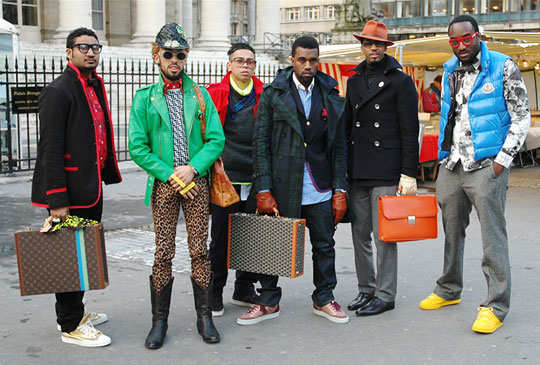
At the beginning of the Internet, we spoke a lot about virtual communities. We believed that we could create new worlds without borders and conflicts, driven by the information flow and organized by explicit interaction rules. The more the network becomes popular, the more the cyber-utopia gets sallow. What people wants is not information but pleasure and they are willing to circumvent rules to get it.
I remember the first time I accessed the Internet from my teenage room: I wanted to download games, a second time, I wanted to create websites, a third, I wanted to work with it. All this for pleasure, not for the information. Linus Torvalds created Linux for the same reason: Just for Fun. He had no political ambition, but became an “accidental revolutionary,” like so many others who contributed to the project.
If do you think nerds are strange people who gets pleasure relating to machines, you’re naive. Although not apparent, the nerd is a social animal as well as other human beings. When he are lonely writing poetry, composing music, creating games, software coding or hacking databases, he interacts with other people indirectly through its material (languages, codes, tools). The nerd is fascinated by the human presence inside objects: its internal logic, its details, its expressiveness.
But it’s not just nerds who gets pleasure from mediated interactions. Personal communication technologies are now used in all strata of society. From the blind man who uses email to mobilize their colleagues to the lawyer that drops the pullet in the gay forum, everyone feels very happy to interact with loved ones and the not-so beloved through the Internet.
Hedonism is the product of the widespread Cultural Industry. In literature, film and television, pleasure is presented as a motivation to live. Then, the goods industry produces different objects to give pleasure, eventually putting them inside the same cultural programming – the famous merchandising. With only this arguments, hedonism seems to be part of a strategy for manipulating the masses through managing consumption demands and offerings, but if do we continue the analysis, we see that this is also the reaction of the individual to a community which he no longer identifies with. In the book Consumers and Citizens, Néstor García Canclini concludes that transnational communities of consumers of a particular brand are much more interesting to the individual than the national imagined community. Through consumption, the individual overcomes geographical limits of identity and acquires the status of a global citizen.

That’s why the Internet is pumping up. If old media allowed earlier identification with such global communities, it is now possible for everyone to show their identification, interact with others who share the same and create new connections. In Orkut, for example, there are thousands of communities created by users – breeders of Belgian canaries to fans of Chico Xavier – and each people subscribe to dozens of them. You can exchange messages with the community, but in most cases, participation is limited to add the community to the personal profile. “It’s like showing a sticker album,” says Michel Lent Schwartzman.
The communities in Orkut and other Internet platforms do not necessarily correspond to real communities in a sociological sense . People that join are often not willing to respect the collective interest, they are there only because, by chance, they share some goals that the community helps to achieve. Virtual communities does not exist. There are real communities that start using the Internet to communicate with and communities that are formed through the Internet, but they have as much flesh and bone as those communities who never used the Internet.
Discussion forums do not make communities, communities that makes discussion forums. You can say that before the forum, community was dispersed, but the elements that defines the community were already there: sense of belonging, common goals, shared history, and culture. The forum can become a space for members to undertake and update these elements, but it isn’t able to create these elements. Only people can understand cultural beliefs. That’s why there are so many discussion forums on the Web that were built with the hope that a new community would arise around him or that an existing community would get that space, as if the forum was the most appropriate communication tool for the community. Sometimes, this attempt succeeds, sometimes not.
Statistics indicate that the percentage of users who actively contribute to forums and other collaborative tools on the Web is very low. This is because most people are not interested in being part of the community, but are willing to share some virtualities. They want information, excitement, recognition, kowledge, money or everything else that brings pleasure. They can give something in return if needed, but they do not want to get too involved with this particular community. Sometimes, they may seem generous, like the kid who answered all the questions in a technical discussion forum, but motivation comes from the challenge of helping others and being recognized for that, not from any kind of sense of belonging.
People are not always selfish in social interactions, however. It turns out that each one identifies with some communities and not with others. To the extent that a person feels part of a group, the group becomes part of the person, ie the individual’s identity is founded upon the collective references with which the individual identifies. Then, collective interests become also individual interests. If one people is part of this collective, the individual is altruistic, but if not, he is selfish. You could say that, deep down, that altruism is a kind of collective egoism, “just do what is good for me or what is good for my groups.”
The root of this selfishness is pleasure. For more altruistic as it may seem a given social interaction, the motivation is selfish as much as it gets pleasure. One who does good for the pleasure of doing good is therefore as much as selfish as selfless. Complicated huh? Yeah. Modern man (and also the modern woman) is a complicated subject. He dreams of a perfect society but takes advantage of social inequality; admire nature, but irrationally exploits its resources; distrusts God, but pray when suffering.
This is why cyber-utopia has been shown impractical. People are not willing to give up pleasure and identity in exchange for a supposedly perfect life. The government of the machines would only be possible if it were able to supply us with pleasure and identity, but for this, machines would have become too complicated as we are. For now, the machinic and contradictory characters of Matrix – Architect, Oracle, Agent Smith – exist only in fiction, but even in fiction, the men rebelled against them. We are really complicated…